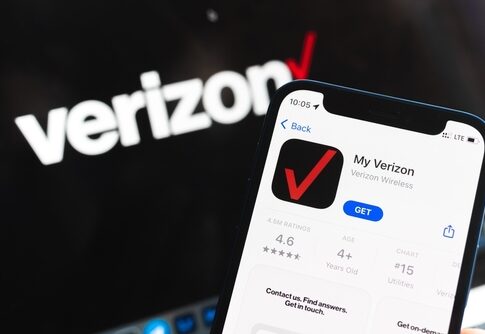When government surveillance quietly collides with the lives of everyday Americans, the story that unfolds is far more gripping than any political thriller—especially when Verizon and special counsel Jack Smith become entangled in a shadowy digital drama that few saw coming.
Verizon and Jack Smith: The Unlikely Intersection of Privacy and Power
Jack Smith, the special counsel known for his aggressive pursuit of high-profile cases, reportedly engaged in a clandestine data-sharing initiative with Verizon. The core of the scandal revolves around whether Verizon provided Smith with access to subscriber records and metadata, potentially without sufficient legal oversight.
This revelation rattles privacy advocates and prompts immediate calls for accountability. The implications extend well beyond political intrigue, touching every American who picks up a phone or sends a text.
Legal experts dissect the nuances, noting that subpoenas for telecom records are not uncommon in federal investigations. However, the scope and secrecy alleged in this instance ignite fresh concerns.
Did Smith’s office overstep, or did Verizon fail to safeguard its users? The answers remain elusive, feeding speculation and fueling the scandal’s momentum. Conservative commentators argue that such unmonitored cooperation undermines the Fourth Amendment and erodes public confidence in constitutional protections.
Public Reaction: Privacy, Outrage, and the Search for Accountability
Americans over 40—those who remember landlines and the transition to mobile—react with a particular blend of shock and cynicism. Social media erupts with hashtags demanding answers, and talk radio hosts dissect every scrap of evidence.
The incident reignites old debates about the Patriot Act, FISA courts, and the uneasy balance between security and liberty. For many, the Verizon-Jack Smith saga is a tipping point: a moment when the abstract threat of surveillance becomes concrete and personal.
Industry analysts warn that the scandal could have lasting consequences for Verizon, whose reputation for reliability is now under new scrutiny. The company’s public statements remain measured, but leaked memos suggest internal panic as executives scramble to reassure both customers and regulators.
Meanwhile, Smith’s office offers little more than procedural justifications, further stoking distrust. The open loop persists: Will Congress intervene, or will this moment pass like so many others, leaving deeper skepticism in its wake?
Obama-appointed Judge Boasberg and the CEO of @Verizon must testify before the Senate Judiciary Committee on their involvement in Jack Smith’s egregious spying scandal.
The American people deserve answers. pic.twitter.com/yOKXuyK2o6
— Sen. Marsha Blackburn (@MarshaBlackburn) November 2, 2025
The heart of the controversy is not just about what happened, but what it means for American values. Conservative voices argue that unchecked surveillance, even in the service of high-profile investigations, threatens the foundational principle of limited government.
They point to historical abuses of power and remind readers that privacy is not a partisan issue—it’s a cornerstone of common sense and civic trust. Critics urge lawmakers to revisit oversight mechanisms and demand greater transparency from both telecom giants and federal investigators.
As the story unfolds, the lesson is clear: vigilance is necessary, and the line between lawful investigation and government overreach grows thinner with each passing scandal. Readers are left pondering what safeguards exist—and whether they are sufficient to protect personal liberty in the digital age. The Verizon-Jack Smith affair is more than a headline; it’s a wake-up call for anyone who believes privacy still matters.
Jack Smith COLLAPSED in Subpoena Fight!! https://t.co/uz51wgG9VQ via @YouTubeat
AT&T crowned themselves in glory in this scandal and Verizon covered themselves in shame! Never trust Verizon on anything! pic.twitter.com/6nSlaof8zW— KCTaz (@KCTaz) November 4, 2025


